If you are living in a rural area, wildlife may be a challenge to deal with. In this post, I will share with you some of the tips on how to protect your succulents from wandering animals including deer. These lovely animals have good appetite. They devour virtually any plants they come across. But do they enjoy eating succulents as well? Let me clarify this:
In most cases, deer would pass on succulents. It makes most succulent growers think that succulents are deer resistant. However, hungry deer would eat anything, though a succulent plant would likely be his last choice :). Remember that just like humans, animals would eat something they don’t normally eat once they are super hungry. This means that, although succulents are not their favorite plant, they would consider it if no other food is available around–for example in a winter season, or after a fire in the area, etc.
Table of Contents
Deer may represent a challenge for your plants
These animals are resilient to food crisis and capable of surviving by improvising. If you are living nearby a wildlife park, or simply close to a forest or any areas where deer roam, this is a considerable challenge for you and your succulent plants. Does this mean that you should not leave your tiny plants outside? Well, I do not think so. In fact, I created this simple post to give you tips on how you can grow succulents outdoor regardless of the threat deer, or other wildlife animals present.
Before proceeding to the guide though, I would like to mention that there are some types of succulents that are more deer-resistant. Those succulents have natural defense systems against foreign intruders like deer. Examples of those succulents are Hens and Chicks, agave, Sempervivum, and Aloe. Aside from choosing deer-resistant succulents, you can do many other things to make sure your plants are safe outside. We will look at them right now.
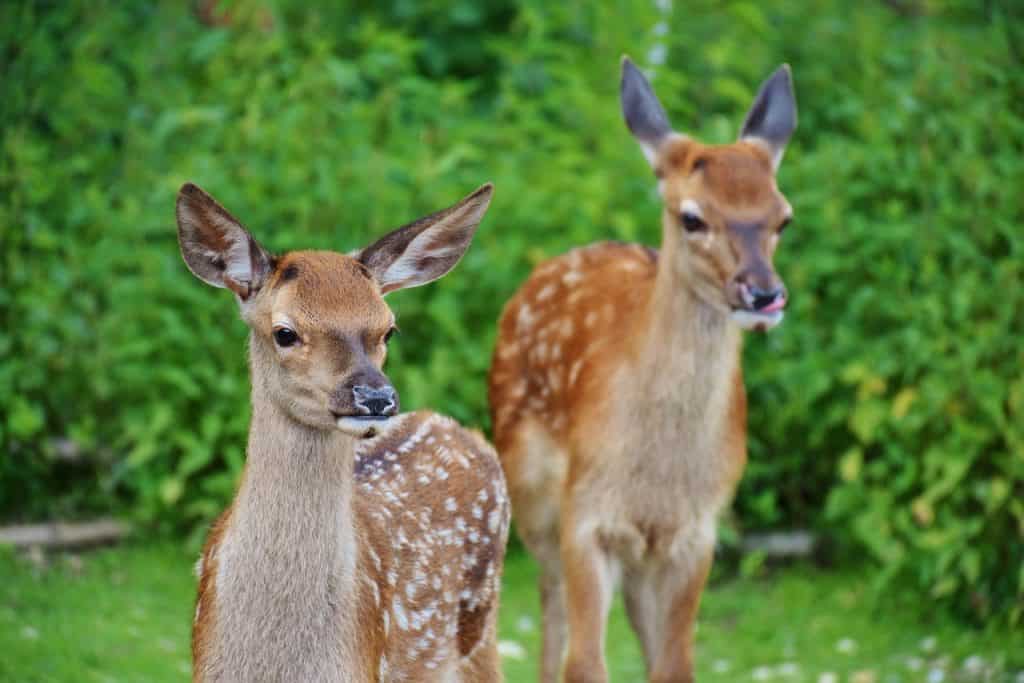
Blend the succulents with companion plants
As I already mentioned, choosing the deer-resistant succulents might not work all the time. Hungry deer may not pass on them. Fortunately, we can strengthen the defense system of our plants. One of the best ways to do so is companion planting.
Companion planting involves other plant varieties around the plants that you want to protect at all costs. In this case, succulents. Surround your succulents with plants that are truly deer-resistant. Deer-resistant plants will serve as the main defense system to deceive the deer. Plant those varieties close to cover your beloved succulent plants. I know about a handful of deer-resistant plant varieties, so let me give you a few examples.
Maximilian sunflower is deer resistant
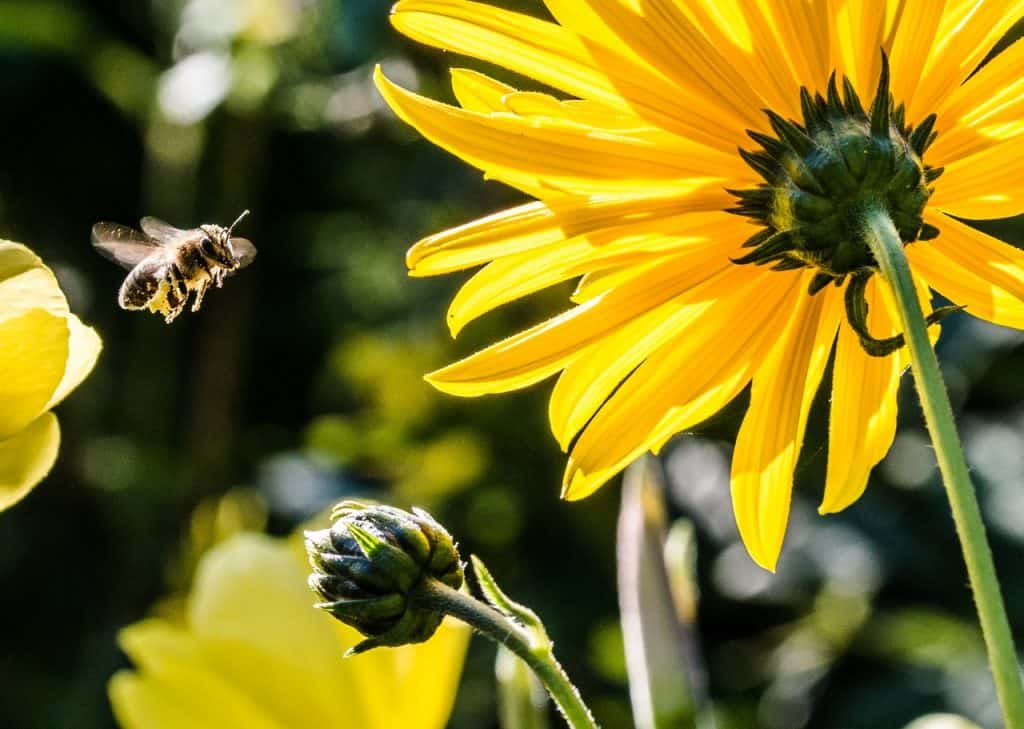
The Maximillian sunflower is one of the best companion plants for succulents. It is a perennial and like succulents, it does not need too much water. And because it loves full sun, it thrives in the same conditions as most outdoors succulents do.
Aside from protection from hungry deer, this type of sunflower can also serve as shade to the succulents. As you may already, know, succulents need partial shade, or at least in ideal conditions. This perticular sunflower grows from 4 to 10 feet tall. Because it grows tall, you can spread it in the garden 3 to 4 feet apart. Last but not least, this yellow beauty is tolerant of extreme environmental conditions such as cold.
Lavender is another flower deer may taste but won’t eat
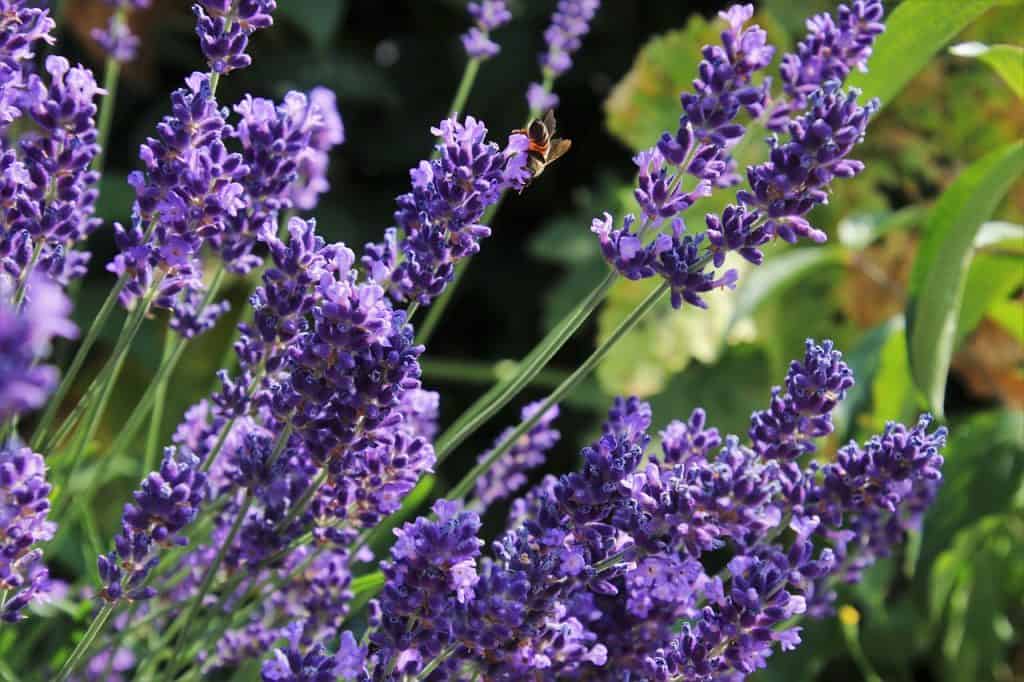
Lavender plants have natural oils will that help scare the hungry deer. These plants are harsh for animal intruders but bring aesthetic features to the human eyes. They also possess irresistible beauty and amazing smells. What I love about lavender plants is that they are drought-tolerant. This means that you water them together with your succulents–not too frequently, and they will do just well!
Lavender plants can grow up to 12 to 48 inches tall. They grow well outdoors, especially when you expose them to direct sun. They can provide shade to the succulents as well. Like succulents, they don’t like to be over-watered, which is something you should keep on your mind when planting them in your succulent garden.
Rosemary plants and Russian Sage don’t taste well to the deer
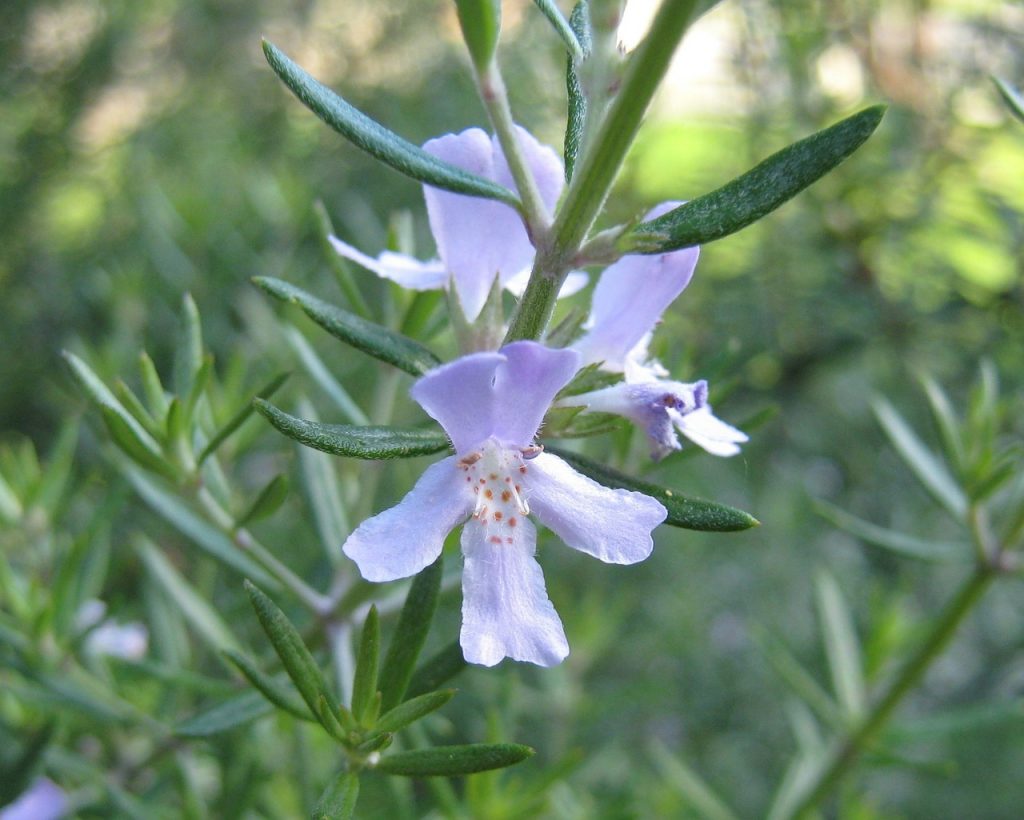
The third plant I would recommend is rosemary. You are no doubt familiar with this plant. This is not just an ornamental plant but also a great condiment for your chicken recipe. But the aroma it produces is what makes the deer deters from it–and from your succulent garden, should you grow the two together.
Russian sage is another great companion plant for succulents. It is not only drought tolerant but also thrives in cold weather. On the top of all benefits, it offers a natural protection to your succulents’ garden. However, this plant can be dangerous to humans, since it has natural substances that can irritate the skin. The same substance makes this plant deer-resistant though. So just stay careful when you are around and you should be fine!
Hyssop–the last on on the list
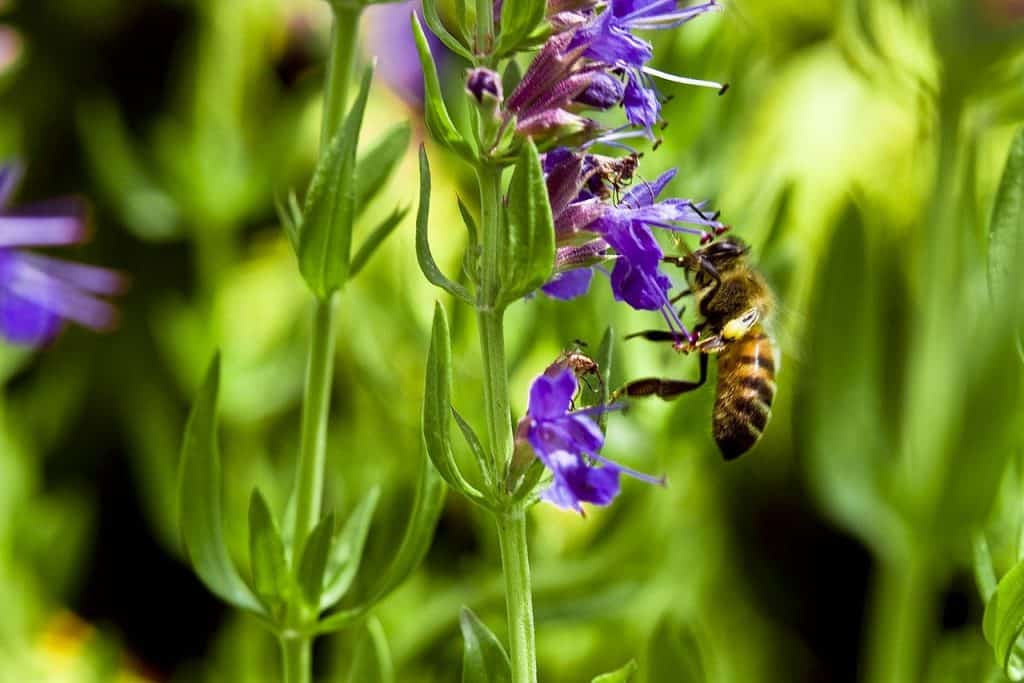
Hyssop belongs to the mint family. For decades, people use this plant to treat many diseases including but not limited to respiratory sickness and earaches. It is also a quick treatment for cuts, rheumatism, and bruises.
Not only humans love this plant but also birds. However, this is also one of the worst enemies of rabbits and deer. Include it in your succulent garden, and you can be sure wild animals will stay away from it. My favorite one is the hummingbird mint. It blooms longer than other plants. This means that you have a stronger defense system against deer and other wandering animals.
The list of plants you can use to protect succulents is longer, of course, but I tried to give you some basic ideas. Look around you and see what else is growing well. Pick those plants and incorporate them into your succulent garden. The very important function of companion plants is to divert the attention of deer from eating your more precious plants, such as your beloved succulents.
Building a fence around your garden is another option of protecting them from deer
You need a lot of muscle, time, and possibly money to build a fence. But this is the most secure defense mechanism against wandering animals. The drawback however with fences is that they could block the sunlight, especially in the early morning when the temperature is perfect for succulents.
When building the fence, make sure you do not build it too high. Just make it high enough to block the deer and other intruding animals but not most of the morning sunlight. Cyclone wire can also be a great option to use on the fence instead of lumber or concrete. Cyclone wire gives the garden good aeration, for both the succulents and us, people who enjoy staying there… I am trying to say here is that, when building a fence, there is no single way to do it. Creativity is the only limit.
Deer repellent is also an alternative
Deer repellents are another great strategy to strengthen the defense in your garden. There are many brands of deer repellents you can choose from in the market. Or if you want, you can try the one that I am using for my succulent garden. Click here to check my recommended deer repellent on Amazon.
Using deer repellents is a good option especially if the succulents are young. At this stage, the plants have no defense system. So giving them something that could protect them is always a great decision. What’s more, if deer love to eat something, it is young plants. Keep it on your mind and protect your valuable garden.
FAQ
Q: Is stonecrop sedum deer resistant?
A: Yes, stonecrop sedum is deer resistant. They are resistant not only for deer but also a rabbit.
Q: What animal is eating my succulents?
A: Aside from deer, there are other animals or insects that could harm succulent plants. Some of these are aphids, mealy bugs, caterpillars, grasshoppers, snails, and slugs. Determining what exactly eats your succulents is difficult. This is because different animals have different eating behavior which leaves different remains.
Q: Will squirrels eat succulents?
A: Yes, squirrels may eat succulents too. When they do, they tend to eat big chunks out of the leaves of the plants making it recognizable. But they don’t usually eat the whole plant.
Q: Do snails eat succulents?
A: Yes, snails eat succulents. They tend to make holes in the leaves of the succulents. Their favorites are the slow-growing succulents. To learn more about succulents, visit my complete guide.
